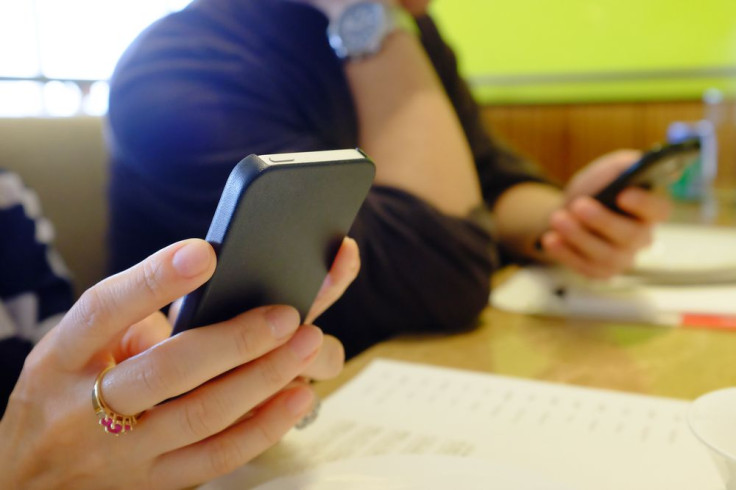Cell Phones Are Distracting Too Many Parents; Disrupting Communication With Kids

Cell phones have completely overrun our society. From higher rates of car crashes to apps for detecting eye diseases, they affect us both positively and negatively. Adding to the list of negatives, though, a new study finds that too many parents are using up valuable time at the dinner table on their phones, rather than communicating with their children sitting right in front of them.
“We know from decades of research that face-t-face interactions are important for cognitive, language, and emotional development,” said study author Dr. Jenny Radesky, a fellow in developmental-behavioral pediatrics at Boston Medical Center, according to HealthDay. “Before mobile devices existed, mealtime would’ve been a time where we would’ve seen those interactions.”
Studies have shown that kids learn best through live interactions with their parents and other adults. One study found that interaction, even through video chat applications like Skype, were better than educational videos at teaching kids language and its mechanics with regards to conversation. Another study found that fathers who interacted with their children more put them at a lesser risk of behavioral problems later on. Being on a cellphone takes away a lot from time that should be better spent, especially because children tend to have inquiring minds.
For the study, researchers watched 55 random caregivers at fast food restaurants as they ate with one or more young children. They took notes about the caregivers’ behaviors, and found that 40 of the caregivers used their phones or other devices during the meal, with 16 of them using it throughout the entire meal. “The girl keeps eating, then gets up to cross the room to get more ketchup. Caregiver is not watching her do this; she is looking down at the phone…,” the notes said, according to NBC. “Still no conversation … Now girl’s head appears to be looking right at caregiver, and caregiver looks up but not at girl…”
One child’s efforts to get his father’s attention led to being reprimanded for acting up — he was singing the parody of the song “Jingle Bells,” “Jingle bells, Batman smells.” Meanwhile some of those who “appeared to accept this lack of engagement … seemed like they’d given up,” Dr. Rahil Briggs, director of pediatric behavioral health services at Montefiore Medical Center in New York, told HealthDay.
Although the effects of parental cell phone use on their children hasn’t been explored deeply, the looks that the researchers saw on the children’s faces showed that they were affected in some way. The study, however, didn’t look into how the children were treated once they got home, and children don’t always need constant face-to-face interaction, Gedeon Deák, a cognitive science professor at the University of California, San Diego told NBC. Nevertheless, it’s important for parents to find some kind of balance between cell phone use and spending time with their kids. Cell phones are “an essential tool,” Radesky said. “What we need to do is help build guidelines for the healthiest ways to use them. It’s important for parents to have ‘off’ time where they tune in only to their child.”
Source: Radesky J, Kistin C, Zuckerman B, et al. Patterns of Mobile Device Use by Caregivers and Children During Meals in Fast Food Restaurants. Pediatrics. 2014.
Published by Medicaldaily.com



























